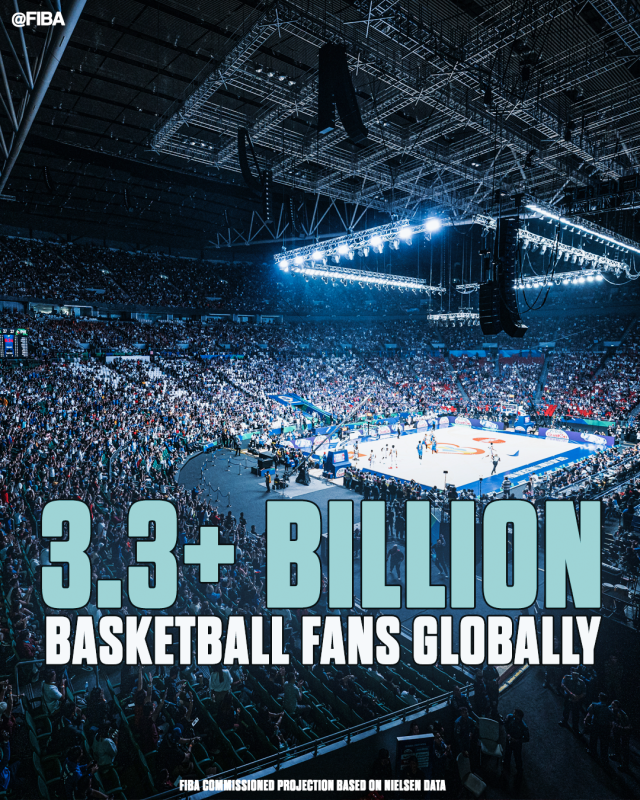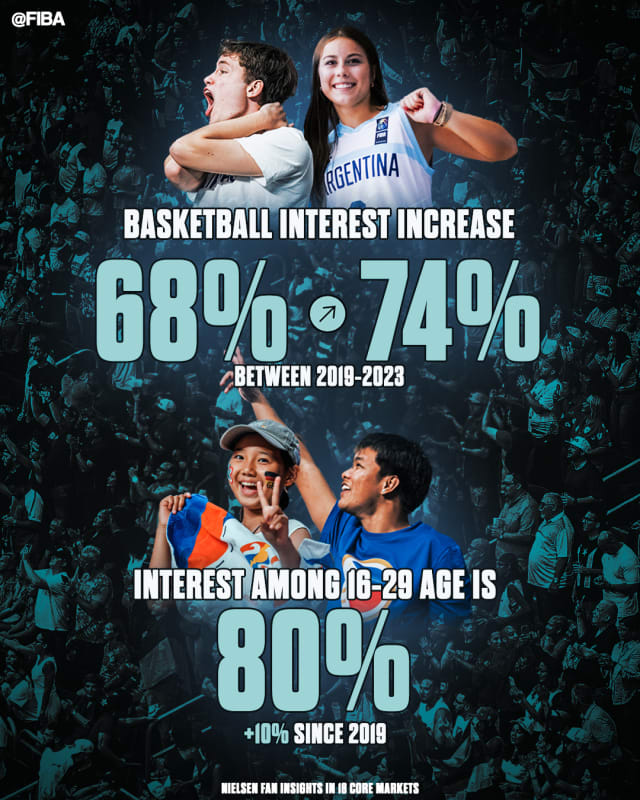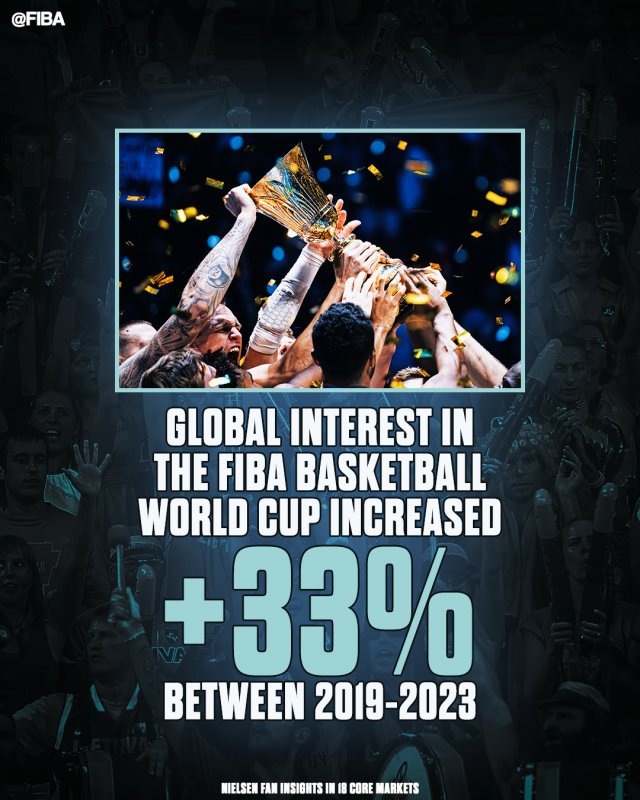Popularity of basketball soaring globally highlighted by increased interest in the FIBA World Cup
MIES (Switzerland) - A landmark research study about the state of basketball has confirmed the global interest in the sport and the rising attraction of the FIBA Basketball World Cup.
MIES (Switzerland) - A landmark research study about the state of basketball has confirmed the global interest in the sport and the attraction of the FIBA Basketball World Cup is continuing to rise with impressive pace.
Renowned for their inside track and extensive expertise on fan data, fan engagement, the impact of brands, sponsorship and the media, Nielsen Sports conducted another extensive consumer research on behalf of FIBA in late 2023, four years after the first report which was completed after the World Cup in 2019.
Conducted in 18 countries worldwide, the Nielsen Fan Insights report has clarified three major takeaways which all contribute strongly to delivering FIBA's mission and vision to make basketball more popular by developing and promoting the game, as well as being the most popular sports community.

More than 3.3 billion basketball fans globally
With almost 3 out of 4 people being interested in basketball in the researched territories, this makes it the second most popular sport globally behind football. This was also underlined by interest growing from 68% to 74% between 2019 and 2023.
Globally, basketball interest is projected at 69%, with over 3.3 billion fans aged between 16 and 69.

Levels of interest soaring in the 16-29 age group
The levels of interest are even higher among 16-29-year-olds within the 18 markets, with an incredible four out of five people below the age of 30 all interested in basketball.
This result represents an eye-catching 10% increase since 2019. Countries such as Indonesia, the Philippines, China, and the UAE were all particularly high for this age group, alongside European markets such as Spain, Germany, and Great Britain.

Rising global interest in the FIBA Basketball World Cup
The FIBA Basketball World Cup, which was held in 2023 for the first time across three countries in the Philippines, Indonesia, and Japan, has seen an increase in interest of 33% over the last four-year period. The awareness ratio is very high for both the Men's and Women's World Cups, with almost every second person aware of these flagship events being interested in them.
For the latest edition of the Men's World Cup, 58% are aware of the event, and 28% showed interest, while for the Women's World Cup 2022, 42% are aware, and 20% showed interest.
Those numbers confirm that the last editions of the World Cups were the best in history, in 2023 for the Men's and in 2022 in Sydney for the Women's.
FIBA Secretary General Andreas Zagklis stated: "This landmark research, done after each FIBA Basketball World Cup since 2019, offers extremely valuable insights on the state of basketball globally.
"These very positive findings confirm that basketball continues to attract more and more fans, especially younger generations. Our strategic objectives, defined in 2019, are clearly contributing to the growing global interest in our sport, helping to make basketball increasingly more popular."
He added: "The report also clearly shows the impact and success of our flagship tournaments in the FIBA Women's Basketball World Cup 2022 and the FIBA Basketball World Cup 2023. Now we look forward to building towards the next editions, Germany 2026 and Qatar 2027 respectively."
To access the management summary of the Nielsen Fan Insights report, click here.
###
About FIBA
FIBA (fiba.basketball) - the world governing body for basketball - is an independent association formed by 212 National Basketball Federations throughout the world. It is recognized as the sole competent authority in basketball by the International Olympic Committee (IOC).
For further information about FIBA, visit fiba.basketball or follow FIBA on Facebook, X, Instagram, LinkedIn and YouTube.
About Nielsen
As the world's leading research and consulting company in the sports and entertainment industry, Nielsen Sports has been analyzing market and media data, linking Nielsen insights about the media consumption behavior of fans worldwide for more than 30 years. To make the most of this uniquely diverse information, Nielsen Sports continuously invests in new methods and technologies.
As a result, we are already providing more than 1,700 leading brands, rights holders, and media companies around the world with reliable decision-making support and precise recommendations on how to handle complex issues.
For more information visit www.nielsensports.com